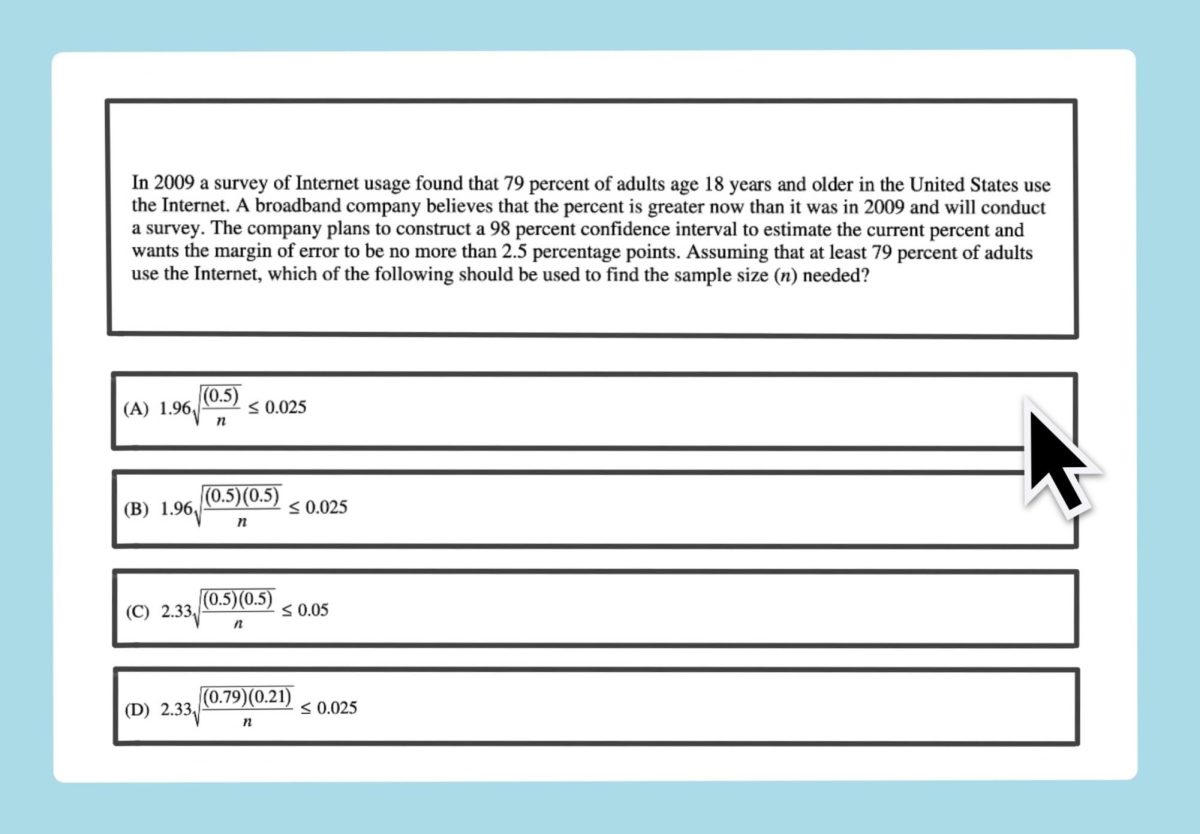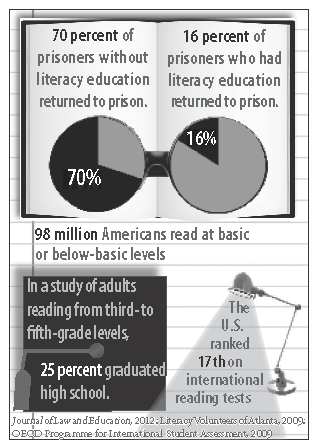
Politicians often claim that prison planners use third-grade reading scores to predict the future size of the prison population. Hillary Clinton and Colin Powell have both touted this alleged connection as indicative of problems in American schools. Luckily for 8-year-olds everywhere, this myth has been debunked. The verdict on literacy education, however, is still out.
At Grady, Mecca Handy teaches a class called Basic Reading, which she said is mostly for students in the Program for Exceptional Children but is also offered to general-education students.
Options for students struggling with reading were plentiful before policy changes purged those classes from the schedule. The elimination of the student-intern program last fall and the absence of a designated literacy teacher have made it difficult for the program to survive.
Starting in the 2010-2011 school year, then-literature teacher James Campbell identified underclassmen who needed extra reading attention using two standardized reading tests. Campbell pulled those students out of their literature classes for short periods to work with upperclassmen tutors, using a literacy program called Great Leaps.
In the fall of 2011, the “pull-out” program was expanded and Great Leaps was available to all underclassmen who needed reading help.
Because of a hole in his schedule during the 2011-2012 school year, Scott Allen, who normally teaches Latin, was asked to teach a class for students struggling with reading and writing skills. The class was called Communication Skills the first semester and Peer Leadership the second. Allen said Grady’s options for low-literacy students are lacking.
“It’s OK to say you’re not good at math,” Allen said. “That’s why we have all the math support classes, but it’s like we’re afraid to offer reading support classes.”
That fear is a trend some Grady teachers have attempted to buck. Handy has offered a summer-reading camp, which she said allowed some students to improve their skills by multiple grade levels.
“I get a lot of support from local vendors,” Handy said, noting that McDonalds and Jimmy John’s donated lunches to her camp.
Campbell administered a pre- and post-test in 2010 to measure grade-level reading equivalency among the students in his pull-out class. On average, the 39 students improved by 1.1 grade levels during the first semester.
Because the student-intern program was discontinued in 2012, Great Leaps was no longer implemented in classrooms. The limitations of curricula and staffing across the country make it extremely difficult, if not impossible, for any school to cater to the needs of every student.
Daphne Greenberg is a professor at Georgia State University and the principal investigator for the Center for the Study of Adult Literacy. Greenberg said schools’ inability to address literacy problems generates more low-literate adults.
In a study Greenberg oversaw involving adults who read between the third- and fifth-grade levels, only about 25 percent of the participants had graduated high school.
“[The group of low-literate adults] includes adults for whom English is a second language, adults who might have psychological problems or cognitive disabilities or were just moved on from one grade to the next,” Greenberg said.
The Journal of Law and Education found that almost 70 percent of America’s prison population reads at a fourth-grade level. Teaching literacy in prison made prisoners less likely to return.
Fortunately, Atlanta’s endemic reading problem has not gone unnoticed. Multiple volunteer-operated agencies bring literacy education to the city’s struggling adults and families.
Literacy Action, Inc., is a nonprofit school for basic adult education. Established in 1968, it is the largest and oldest institution of its type in the Southeast. Literacy Action offers basic reading, mathematics and computer classes, which begin at a second-grade level and advance to the level required for the General Education Development tests.
To executive director Austin Dickson, basic adult education can improve the lives of adults in the program and their posterity. Dickson stressed the connection between literate adults and children’s development of similar skills. Ninety percent of Literacy Action’s students live in households with children.
“If academics are not a skill set in the household, that will not trickle down to the next generation,” Dickson said. “We offer programs for parents so they understand how to help their children with their homework.”
Students of Literacy Action can offer children in their household the same support most students at school receive from their parents. At Grady, the class Allen taught was not going well at the end of the first semester. Many students were not interested in what was being taught.
“I was in a bookstore looking for Christmas presents, and I found a copy of the play, Twelve Angry Men,” Allen said. He set up the chairs in his classroom like the jury in the play and had his students read it. Allen’s students made predictions about the ending, discussed the plot and compared the film with the text.
“It was like night and day between the fall semester and spring semester,” Allen said. “They were starting to do the real reading skills we were trying to teach.”
The year after he taught the reading class, Allen’s schedule was back to normal. The class hasn’t been offered since.








